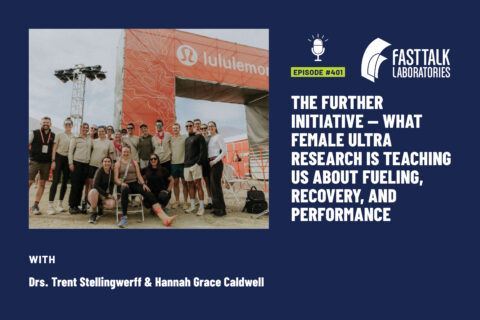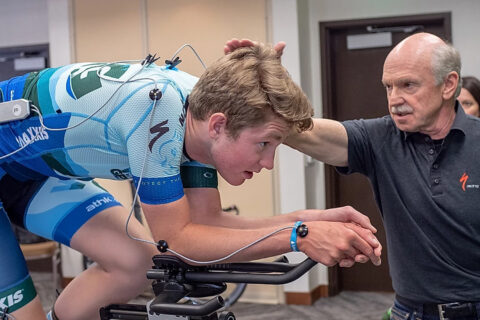
Celebrating American Cycling Success in 2025, with Jim Miller
Across cycling disciplines, American riders male and female had exceptional success. USA Cycling’s Chief of Sports Performance details the highlights, addresses.


Across cycling disciplines, American riders male and female had exceptional success. USA Cycling’s Chief of Sports Performance details the highlights, addresses.

Athletes can now perform sweat analysis, check skin temperature, and monitor insulin in the field. But should they? We review the latest in nutrition technologies. We also talk about the potential adverse impacts of carbohydrates and caffeine on our health.

Former elite distance runner Siren Seiler-Viken exposes the truth about focusing on light racing weight: performances will suffer and health will deteriorate.

This episode highlights the Further Initiative — a groundbreaking research project on female ultra-endurance athletes conducted in partnership with Lululemon and the Canadian Sport Institute Pacific.

For our 400th episode we invited three of the most prominent names in exercise physiology to discuss where we are and where we’re going in endurance sports science.

Physical therapist Carol Passarelli reveals the truth about “tight upper traps” in cyclists, what the usual causes are, and how to fix neck pain.

In this week’s potluck episode, we discuss whether there is a true ceiling to our potential, whether there’s a value in “wintering” or taking time off, and what cross training our hosts recommend.

As athletes, we understand the need for training plans, but have you ever considered applying the same principles to your nutrition? This episode discusses how it’s done.

Two new studies challenge common assumptions: intensity may matter more than volume for healthy aging, and triathlete injury patterns aren’t what most coaches would predict. We unpack what this means for training prescription, and why neuromuscular and strength work belong in every plan.

This course featuring Dr. Andy Pruitt, coach and bike fitter Colby Pearce, and Todd Carver, cofounder of Retül and Head of Human Performance at Specialized, shows coaches how to guide their athletes to dial in the right balance of aerodynamics, power, and comfort for faster, stronger cycling.

See how to protect your personal and business assets—and your athletes—with smart strategies that limit the liabilities for your coaching business.

See how to track your coaching business’s financial health and forecast profit, manage losses, and plan for future financial scenarios.

In this course, co-founder of Metta Endurance, coach Holly Benner provides a step-by-step guide to planning and launching your small business from ownership structure and government filings to finance and business plan.

Drawing from the latest in sports psychology, this course gives coaches a structured approach to developing mental skills and resilience with guidance from Dr. Simon Marshall and pro triathlete and world champion Lesley Paterson.

This course from Dr. Brian Butki and coach Grant Holicky shows coaches how to prepare athletes mentally for race day with Race Day Cognitive Plans, visualization drills, and plug-and-play cues to help athletes achieve their IZOF.

The popular phrase “sleep high, train low” does not fully capture the best practices of altitude training. In this course, coaches learn the physiology, timing, and strategy that makes altitude training more effective.

Experts in medicine, biomechanics, and physical therapy join Dr. Griffin McMath and Trevor Connor to decode the causes of neck pain in cyclists and the strategies that keep athletes strong, steady, and pain-free over the long haul.

These are the activities you can expect to be able to do—and not do—in the first six weeks postpartum.